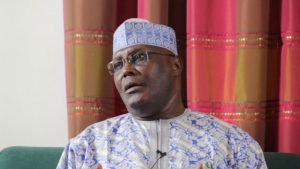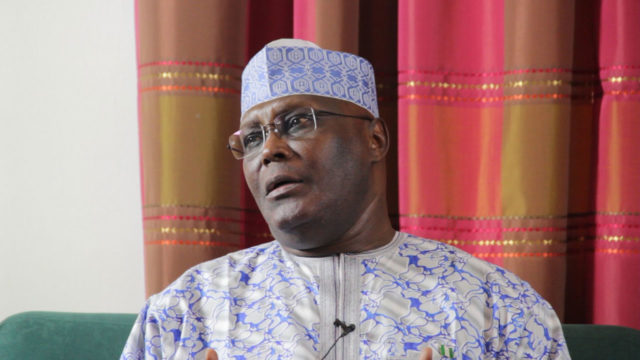
The Adamawa State Government has officially revoked the traditional title of Waziri Adamawa previously held by former Vice President Atiku Abubakar, citing a recently introduced indigeneship policy governing eligibility for emirate council positions.
The directive, issued in a circular dated June 20, 2025, and signed by Mrs. Adama Felicity Mamman, Permanent Secretary of the Department of Chieftaincy Affairs, is part of a broader restructuring of the state’s traditional institutions. This follows the creation of new chiefdoms under Governor Ahmadu Umaru Fintiri’s administration.
Historically the second highest-ranking title in the Adamawa Emirate after the Lamido, the Waziri title now requires holders to be indigenes from specific districts — Yola South, Yola North, Girei, Mayo-Belwa, Song, and Zumo. Atiku, whose hometown is in Jada Local Government Area within the Ganye Chiefdom, falls outside the newly designated areas, rendering him ineligible.
The circular also states that the policy applies to all emirate council members and traditional titleholders across Adamawa State, affecting others similarly positioned outside the approved districts.
While the government maintains the move is purely administrative, political analysts interpret the decision as reflective of growing tensions between Governor Fintiri and Atiku Abubakar. Both prominent figures in the Peoples Democratic Party (PDP) during the 2023 elections, recent developments indicate widening political rifts.
Atiku has recently been linked to discussions with national political figures including Peter Obi, Nasir El-Rufai, and Senator Aishatu Binani, sparking speculation about a possible new opposition coalition ahead of the 2027 general elections.
Adding to the controversy is a bill before the Adamawa State House of Assembly that would empower the governor to depose traditional rulers deemed unfit and appoint successors directly. Critics argue the legislation risks centralizing excessive power in the executive branch and undermining the independence of traditional institutions.





